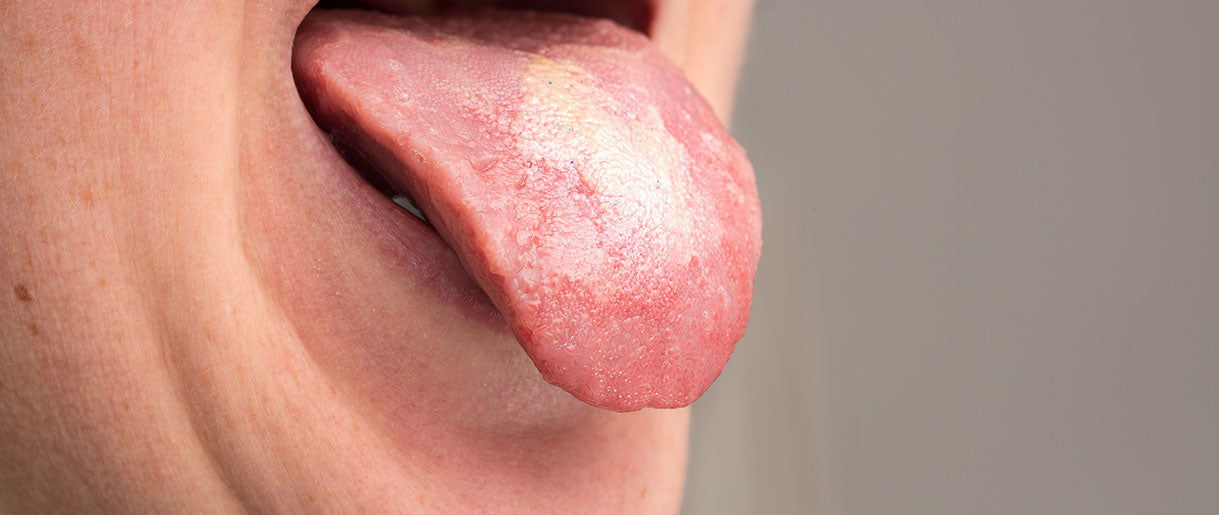Mushrooms can be a valuable part of a diet designed to support thyroid health, mainly due to their high selenium content. Selenium is a crucial nutrient for thyroid function as it aids in producing thyroid hormones.
Including various mushrooms—such as Shiitake, Maitake, or Reishi—in your diet can contribute to your daily selenium intake. However, while mushrooms and other selenium-rich foods can support thyroid health, they are not a standalone solution for thyroid disorders. It's important to remember that maintaining a balanced diet and following your healthcare provider's advice is essential for managing thyroid health.
As we delve deeper into the topic, we'll explore the unique nutritional profile of mushrooms and how they can potentially interact with thyroid health. Mushrooms, beyond their selenium content, offer a variety of nutrients that support overall wellness. Also, their versatility in culinary applications makes them a convenient and tasty addition to your meals.
We'll also provide a broader view of dietary factors influencing thyroid health. After all, diet is a critical player in maintaining our body's balance, including the function of the thyroid. Understanding the role of diet, including the potential benefits of mushrooms, can provide another tool in your toolkit as you aim for optimal thyroid health and overall well-being.
The Thyroid Gland: An Essential Player in Our Health
The thyroid gland, located at the base of the neck, plays a crucial role in our body's metabolism. It produces two vital hormones—triiodothyronine (T3) and thyroxine (T4)—that regulate various body functions.
These thyroid hormones control the speed of our metabolism, affecting how quickly we burn calories and how quickly our heart beats. Any disturbance in these hormones' production can significantly affect various bodily functions.
Disruptions to Thyroid Gland Health: Common Thyroid Disorders
One of the leading challenges to thyroid gland health is thyroid disorders, particularly Hypothyroidism, and Hyperthyroidism. Hypothyroidism, an underactive thyroid, is a condition where the thyroid gland does not produce enough thyroid hormone. On the other hand, Hyperthyroidism, an overactive thyroid, is a condition where the thyroid gland produces too much thyroid hormone. Both conditions disrupt the body's metabolism, leading to health complications.
Autoimmune Thyroid Diseases: When The Immune System Attacks the Thyroid Gland
Interestingly, many thyroid disorders are autoimmune thyroid diseases. These occur when the immune system mistakenly targets the thyroid gland, impacting its functioning ability. Hashimoto's Thyroiditis, for example, is an autoimmune thyroid disease where the immune system produces thyroid antibodies that attack the gland, leading to decreased production of thyroid hormone levels—an underactive thyroid.
Identifying Trouble: Symptoms of Poor Thyroid Function
Symptoms associated with poor thyroid function can vary depending on whether you're dealing with an underactive or overactive thyroid. An underactive thyroid, or Hypothyroidism, might lead to fatigue, weight gain, depression, and sensitivity to cold. An overactive thyroid, or Hyperthyroidism, could cause weight loss, rapid heart rate, nervousness, and sensitivity to heat.
The Magic of Medicinal Mushrooms: Exploring Their Diversity

When discussing the potential of mushrooms for thyroid health, it's important to note that not all mushrooms are created equal. There is a rich diversity in the world of mushrooms, from edible mushrooms that you can incorporate into your meals to medicinal mushrooms used for their distinct health benefits.
Shiitake, Maitake, Reishi, and other medicinal mushrooms, like Chaga, Lion's mane mushroom, and Turkey Tail, have all been recognized in traditional Chinese medicine for their impressive health benefits.
In addition to their potential for alleviating thyroid issues, these mushrooms improve gut health, modulate the immune system and improve gut health—two areas intrinsically linked to autoimmune diseases, including those affecting the thyroid.
Decoding the Nutritional Profile: Health Benefits in Every Bite
Eating mushrooms brings a delicious umami flavor and a host of nutritional benefits. One of the critical nutrients in mushrooms that plays a significant role in thyroid function is selenium. Selenium is essential for converting thyroid hormone T4 into its active form, T3.
Beyond selenium, mushrooms are a rich source of vitamin D, a vital nutrient that modulates the immune system, reduces inflammation, and is crucial for bone health. Interestingly, mushrooms are one of the few plant sources of vitamin D, making them an ideal dietary addition for those facing thyroid conditions.
Delving Deeper into the Health Benefits of Specific Medicinal Mushrooms
Taking a closer look, Chaga mushrooms are revered in traditional Chinese medicine for their immune-modulating properties, which can be beneficial in the context of autoimmune thyroid diseases. Reishi mushrooms, on the other hand, have been used for centuries to support gut health, which is vital given the connection between gut health and autoimmune diseases.
Other medicinal mushrooms like Cordyceps Sinensis and Lion's mane mushrooms carry unique health benefits, further enriching the potential of medicinal mushrooms in addressing thyroid issues.
Mushrooms for Thyroid: The Selenium Connection

Medicinal mushrooms, as well as edible mushrooms, are known for their rich selenium content. This nutrient plays a crucial role in maintaining thyroid health.
Selenium acts as an antioxidant and is essential for the metabolism of thyroid hormones. It helps reduce thyroid antibodies, which can, in turn, improve thyroid function. Therefore, regular consumption of mushrooms can potentially help achieve thyroid balance.
Unveiling the Science: Research on Mushrooms for Thyroid Health
Several studies have examined the potential of medicinal mushrooms, like Chaga mushrooms, in promoting thyroid health. Some research suggests that(1) Chaga mushrooms can modulate the immune system by promoting a healthy natural killer cell response and activating dendritic cells, both essential in managing autoimmune diseases such as thyroid autoimmunity.
Another exciting area of research is the potential of Chaga mushroom and other edible mushrooms to manage too much thyroid hormone in the body. Preliminary studies suggest that certain compounds in these mushrooms may help normalize hormone levels, proving beneficial for those with thyroid disease.
Moreover, research has highlighted(2) the anti-inflammatory properties of these fungi. Chronic inflammation is often associated with various health issues, including thyroid disease. By reducing inflammation, mushrooms may contribute to a healthier thyroid.
Potential Limitations and Contradictions in Research
While the health benefits of medicinal and edible mushrooms concerning thyroid health are promising, it's essential to understand the limitations of the current research. Most preliminary studies are conducted on cell cultures or animal models; human trials are still limited.
In addition, while mushrooms are generally safe to eat, consuming them raw or in large quantities may lead to certain health problems, like blood pressure fluctuations and potential digestive discomfort.
Furthermore, as much as mushrooms offer numerous health benefits, from brain health to blood pressure regulation, they are not a standalone treatment for thyroid diseases.They should be part of a comprehensive treatment plan, which includes medical supervision, a balanced diet, and lifestyle modifications.
As research continues to unfold, we can remain hopeful about the future of mushrooms for thyroid health. However, always consult a healthcare professional before starting any new dietary regimen or supplement, particularly if managing a health condition like thyroid disease.
Tasty and Healthy: Incorporating Mushrooms into Your Meals

Edible mushrooms are versatile culinary ingredients and functional fungi loaded with nutrients that can support thyroid health. They can be incorporated into your diet in numerous ways.
Sauté them in olive oil for a side dish, add them to stir-fries, salads, or soups for extra texture and flavor, or use them as a meat substitute in vegetarian dishes. You can also include medicinal mushrooms in your diet via supplements, like Lion's mane extract, to reap the health benefits they offer.
Cook up Thyroid Health: Mushroom Recipes for Your Diet
The beauty of mushrooms lies in their versatility. Here are two quick and thyroid-friendly recipes that include edible mushrooms:
Shiitake Mushroom Stir Fry
Sauté Shiitake mushrooms with garlic, onions, and a mix of colorful bell peppers. This dish is rich in selenium, anti-inflammatory compounds, and B vitamins, all beneficial for those managing thyroid disease.
Chaga Mushroom Tea
Steep Chaga mushroom chunks in hot water to create a calming, immune-boosting mushroom tea. This soothing beverage helps modulate immune complement pathways and stimulate natural killer cells—crucial for those with thyroid disease.
Proceed with Caution: What to Remember When Consuming Mushrooms
As you enjoy your mushroom-filled meals, keep in mind a few precautions. Firstly, raw mushrooms are edible but often hard to digest. Cooking them makes them easier to digest and helps release their beneficial nutrients.
Secondly, while medicinal mushrooms have many health benefits, they should be consumed responsibly, under the guidance of a healthcare provider, especially if you're managing a thyroid disease. Overconsumption could lead to unexpected side effects or interactions with medications.
Finally, although rare, mushroom allergies do exist. If you're new to certain types of mushrooms, introduce them into your diet gradually and monitor for any adverse reactions.
Beyond Mushrooms: Foods That Boost Thyroid Health

While medicinal and edible mushrooms offer notable benefits for thyroid health, they are just one component of a balanced diet. Other foods and nutrients also play a key role in maintaining thyroid function. For example, iodine is a crucial nutrient for thyroid hormone production, and it can be found in foods like fish, dairy, and iodized salt.
Foods rich in antioxidants, like berries and dark chocolate, help to fight free radicals and reduce inflammation, which can aid in managing autoimmune thyroid disorders. Zinc and selenium, found in nuts, seeds, and whole grains, are also essential for thyroid function. Moreover, consuming probiotic-rich foods and supplements can promote a healthy gut, which supports a healthy immune system.
Foods That Can Disrupt Thyroid Function

Conversely, certain foods may harm thyroid function and should be consumed in moderation. These include cruciferous vegetables like broccoli and cauliflower, which can interfere with thyroid hormone production when eaten in large quantities. Similarly, highly processed foods and those high in refined sugars can trigger inflammation and exacerbate thyroid issues, potentially leading to conditions like overt Hyperthyroidism.
Balancing Your Plate for Your Thyroid
In the context of thyroid health, it's vital to remember the importance of a balanced diet. Just as certain foods support thyroid function, others might disrupt it. It's about creating a balanced and diverse dietary routine that considers your entire digestive system.
Genetic factors, like family history, also play a significant role in thyroid health. Thus, it's essential to tailor your diet to your health needs and thyroid health. A healthcare provider or a dietitian can help you devise a nutrition plan considering these unique factors.
FAQs About Mushrooms for Thyroid
Can I Eat Raw Mushrooms For Thyroid Health?
Yes, you can eat raw mushrooms, but it's important to note a few considerations. While raw mushrooms are not toxic, they can be challenging to digest for some people and contain a substance called agaritine, which is heat-sensitive and can be reduced by cooking. Agaritine has been shown in some studies to have potential carcinogenic properties, but the risk is considered extremely low.
In the context of thyroid health, many of the beneficial compounds found in mushrooms, such as selenium, are not affected by cooking. Moreover, cooking mushrooms can increase the bioavailability of certain nutrients.
Finally, while it's generally safe to consume raw mushrooms, doing so in large amounts over a long period is not recommended without medical supervision, especially for those with thyroid conditions. Always thoroughly wash raw mushrooms before eating to remove residual dirt or contaminants.
Can Mushrooms Be Used With Other Medications For Thyroid?
Mushrooms, both edible and medicinal, are generally safe to consume and may offer beneficial effects for those with thyroid conditions. However, the interactions between mushrooms and specific thyroid medications are complex and not fully understood.
Certain mushroom components, such as selenium, may interact with thyroid medications. For example, selenium can help reduce thyroid antibodies in individuals with Hashimoto's disease, potentially enhancing the effect of certain thyroid medications. However, excessive selenium intake can also have adverse effects and may not be suitable for those with certain thyroid conditions.
Furthermore, some medicinal mushrooms may have immune-modulating effects, which could theoretically interact with medications that also affect the immune system.
Therefore, if you're considering incorporating mushrooms into your diet as a supplementary approach to managing your thyroid condition, it's essential to consult with your healthcare provider or a dietitian. They can provide personalized advice based on your current medication regimen, health status, and dietary needs.
As with any dietary supplement, mushrooms should not be used as a substitute for prescribed medication unless under the guidance of a healthcare provider. Remember, combining dietary approaches with your current medication regimen should be done responsibly to ensure safety and efficacy.
When Is The Best Time To Take Mushrooms?
The best time to consume mushrooms may depend on the form you are taking them in and your personal health goals.
- Culinary Use: If you include mushrooms in your diet for their general health benefits, you can consume them anytime as part of your meals. This could be in a breakfast omelet, a lunchtime salad, or a stir-fry dinner.
- Supplemental Use: If you're taking mushrooms in supplement forms, such as in capsules, tablets, or extracts, the best time to take them often depends on the specific product and the instructions provided by the manufacturer or your healthcare provider. Some may recommend taking them on an empty stomach for better absorption, while others might suggest taking them with meals to minimize potential stomach discomfort.
- For Sleep and Relaxation: Certain mushrooms, like Reishi, are known for their potential calming effects and are often taken in the evening to promote relaxation and enhance sleep quality.
Always remember to follow the advice of your healthcare provider, especially if you're taking mushrooms in a medicinal context or managing a specific health condition, such as thyroid disorder. This is especially important because the bioactive compounds in mushrooms can interact with medications or have different effects at different times of the day.
Key Takeaways
Edible and medicinal mushrooms have been recognized for their nutritional richness and potential health benefits, particularly for thyroid health. Their high selenium content and other nutrients and bioactive compounds may support thyroid function and contribute to overall wellness.
However, while incorporating mushrooms into your diet can be beneficial, they are only one piece of the larger picture. A balanced diet incorporating various nutrient-dense foods is vital to maintaining overall health, including thyroid health. Remember, what works best depends on your health needs and circumstances.
We would love to hear about your experiences or thoughts on this topic. Have you tried incorporating mushrooms into your diet? Do you have any favorite recipes? Please share your comments below, as your insights might help others explore similar health journeys.
Our ultimate goal is to provide you with information that supports your well-being. Your feedback helps us achieve that. Thank you for reading, and we look forward to your comments!
References
-
In Vitro Immunomodulatory Effects of Inonotus obliquus Extracts on Resting M0 Macrophages and LPS-Induced M1 Macrophages,
(1)https://www.ncbi.nlm.nih.gov/pmc/articles/PMC9050302/ - Anti-inflammatory properties of edible mushrooms: A review, (2)https://pubmed.ncbi.nlm.nih.gov/29146352/










Let Us Know Your Comments